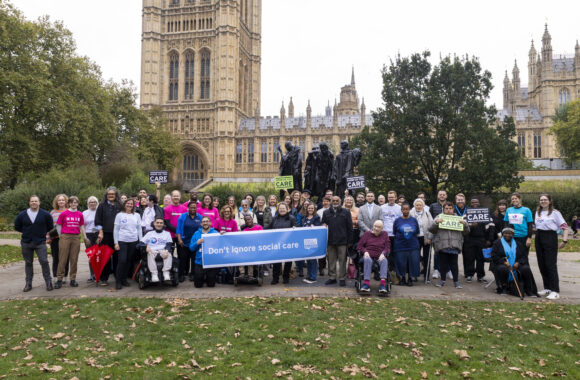
In recent years funding pressures have meant many local authority and healthcare commissioners have been forced to reduce or cap the amount they can spend on supported housing services. As a result it has become common for providers to exit the social care arena.
Although it is undoubtedly a challenging market, for us at Look Ahead, the provision of supported housing is why we exist. We believe that the most vulnerable people in society deserve the high-quality services we provide – and we do so for around 7,000 people each year.
So how do we square the circle? How do we manage risk in an increasingly challenging sector?
Delivering public sector contracts in a sustainable way is very difficult: we see lessons from the recent negative experiences of businesses Carillion, Allied Healthcare and Southern Cross.
As a high proportion of our income comes from contracts that span three years, we have had to develop very tight risk management systems to enable us to manage this effectively. Here are some of the main issues we are facing.
A key area for us is pay. Look Ahead is committed to paying a living wage or London Living Wage to our colleagues. As a result, in the past seven years we have seen our costs go up, but at the same time the price our commissioners are able to pay has come down.
This can mean that contracts we held seven years ago potentially cost us 20 per cent more to deliver today, which is increasingly problematic if contracts are rolled over with no uplift in fees.
In the past year, we have been through re-tenders for 28 per cent of our business and retained all the contracts we submitted. Like others in the sector we have also handed back contracts and not submitted tenders where we cannot afford to cover our costs and generate the small surplus required to keep our organisation sustainable.
As well as the increased costs of our biggest resource, people, we are increasingly finding that the customers who are referred to us have more complex needs. Contracts we have won for low-needs mental health customers turn out to be of greater complexity and therefore higher cost to deliver safely. This is where we have to be smart and build contract variations into our negotiations and contracts.
As a consequence of all these challenges and in common with many organisations, our risk process is dynamic and live. Although we have grown steadily year on year, we have learned our own lessons from the past and from other providers, and so for us it is good growth, not growth at any cost. So what steps have we put in place to ensure we manage our business accordingly?
The first point to make is that our corporate risk register is supported by contract risk registers that cover safeguarding and quality issues. Large contracts are reviewed by a risk panel of senior staff and we also explore contracts based on financial analysis over an extended five-year period before signing them. We regularly look at the financial health of existing services to assess their sustainability and renegotiate contracts that are not sustainable.
In addition, we are making everything stack up by diversifying our business model to grow additional income through new commercial property streams and other sources. Some general needs housing associations take this approach to ensure they maximise the amount of sub-market rent homes they provide – we do the same, but to provide care and support facilities and services.
The proposed changes to how supported housing is funded have given us some pause for reflection, but we are confident that ministers are listening to the concerns expressed by us and our peers.
As with most things in life, organisational sustainability is about relationships. It is about ensuring we have strong relationships with commissioners so that they are aware we are not here to make huge profits, but they want to do business with providers that are financially sustainable for the long term.
While we enjoy many relationships on this basis, some commissioners need to understand that if they continue to drive down prices in the social care market then high-quality, sustainable providers will potentially cease to exist in years to come. Look Ahead is confident we have taken significant steps to accommodate these pressures, but any low-hanging fruit to make our organisation more efficient is long gone.
That said, and as is now the supported housing sector’s unofficial mantra, we will continue to push ourselves to deliver more with less. The biggest risk of all is that the 7,000 vulnerable people we work with each year don’t receive the support they need, and that is very much focusing our minds.
Originally published in Social Housing, 6 June 2018

